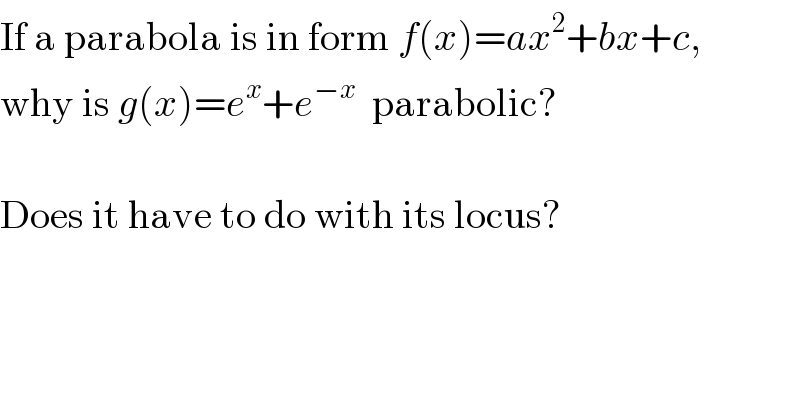
Question Number 2979 by Filup last updated on 02/Dec/15

$$\mathrm{If}\:\mathrm{a}\:\mathrm{parabola}\:\mathrm{is}\:\mathrm{in}\:\mathrm{form}\:{f}\left({x}\right)={ax}^{\mathrm{2}} +{bx}+{c}, \\ $$$$\mathrm{why}\:\mathrm{is}\:{g}\left({x}\right)={e}^{{x}} +{e}^{−{x}} \:\:\mathrm{parabolic}? \\ $$$$ \\ $$$$\mathrm{Does}\:\mathrm{it}\:\mathrm{have}\:\mathrm{to}\:\mathrm{do}\:\mathrm{with}\:\mathrm{its}\:\mathrm{locus}? \\ $$
Commented by 123456 last updated on 02/Dec/15

$${g}\left({x}\right)={e}^{{x}} +{e}^{−{x}} =\mathrm{2cosh}\:{x} \\ $$
